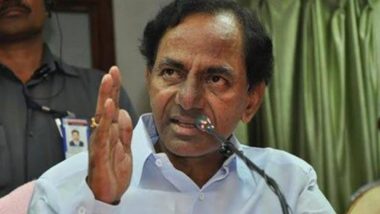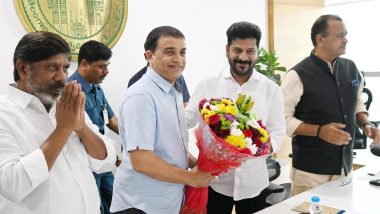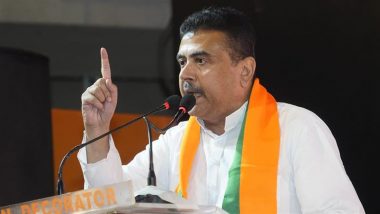Hyderabad, February 17: The Telangana government has decided to pass a resolution in the assembly against the Citizenship Amendment Act, joining the ranks of anti-CAA states. The Telangana government took the decision in a Cabinet meeting chaired by Chief Minister K Chandrasekhar Rao, while urging the Centre to repeal last year's changes in the Citizenship Act.
It also appealed to the Centre "not to discriminate" on the basis of religion in granting citizenship to anyone. "The State Cabinet appealed to the Union Government, not to discriminate on the basis of religion for according Indian citizenship. It requested that all religions must be treated as equal before the law," an official release on decisions taken in the Cabinet meeting said on late Sunday night. Kerala Halts NPR Updation Exercise Amid Anti-CAA Stir, Becomes 2nd State to Stay Process After West Bengal.
The Cabinet meet, chaired by the Chief Minister, felt the CAA would lead to discrimination on the basis of religion in grant of citizenship and jeopardise secularism envisaged in the Constitution. "The Cabinet further requested the central government to take measures to abrogate the Citizenship (Amendment) Act, 2019 which will lead to discrimination on the basis of religion while granting citizenship and thereby jeopardising secularism envisaged in the Constitution," the release said.
The state Cabinet decided to pass the anti-CAA resolution in the state assembly on the lines of the ones passed by Kerala, Punjab, Rajasthan and West Bengal, it said. Coming out strongly against the CAA, Rao had said last month said he might convene a meeting of regional parties and chief ministers to oppose the amended citizenship law.
The state assembly may pass a resolution, like the other state assemblies did, against the CAA, he had said then. The Cabinet meeting, which began on Sunday evening, concluded late in the night. The Cabinet also decided to organise 'Pattana Pragathi' (progress of towns) programme, aimed at ensuring cleanliness, greenery and planned development in urban areas, for 10 days beginning February 24 in all towns and cities of the state, a separate official release said.
A state-level 'municipal conference', to be attended by mayors, municipal chairpersons, commissioners, MLAs and district collectors, would be held here on February 18 to finalise the guidelines for the programme, it said.













 Quickly
Quickly




















